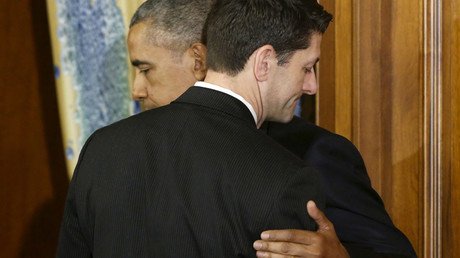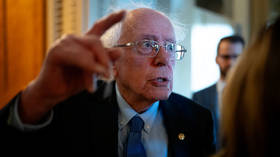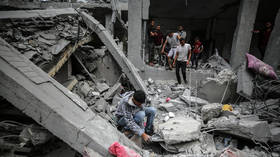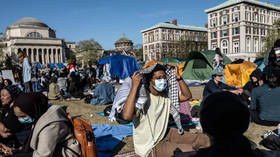'Document 17': Declassified US govt memo suspects multiple Saudi links to 9/11 attacks
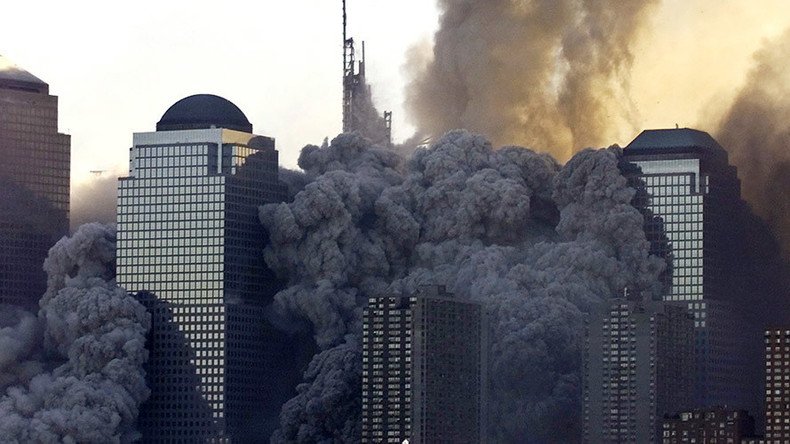
New questions have been raised about Saudi Arabia's role in the 9/11 attacks after it was revealed that an envelope from the Saudi embassy in Washington was found containing the flight certificate of an Al-Qaeda operative.
The flying certificate for Ghassan al-Sharbi, who reportedly took lessons alongside some of the 9/11 hijackers, was included in a cache of documents hidden by the operative in Pakistan. The certificate was kept inside an envelope from the Saudi embassy in Washington, DC.
The certificate and other documents buried by al-Sharbi were found when he was captured in Pakistan in 2002 and subsequently sent to Guantanamo Bay.
The discovery of the certificate was disclosed in a 47-page work report which was compiled for the FBI in 2003. It was written by two US investigators, Dana Lesemann and Michael Jacobson, examining the possible roles of foreign governments in the attacks.
“Why did Ghassan Al-Sharbi bury a cache of documents near where he was staying in Pakistan, including an envelope from the Saudi Embassy in Washington, DC, containing his flight certificate from Embry Riddle University in Phoenix?” the investigators wrote in the report.
Although the report was declassified by the US government in July 2015, it was only after activist Brian McGlinchey discovered the document and published its details online this week that it was brought to the public's attention, The Mirror reported. McGlinchey dubbed it as ‘Document 17’.
"The envelope points to the fundamental question hanging over us today: to what extent was the 9/11 plot facilitated by individuals at the highest levels of the Saudi government?" McGlinchey said after discovering the report.
This and other questions were included into the section ‘Key Questions Regarding Possible Saudi Government and Royal Family Connections to the September 11 Hijackers and Other Terrorists and Terrorist Groups.'
Other parties mentioned include Abdullah Bin Laden, Osama Bin Laden's half-brother, who had been assigned to the Saudi embassy in Washington as an administrative officer; Hamah Alotaibi, who was assigned to the Saudi embassy's military division in Washington and was possibly visited by a 9/11 hijacker; Mohammed Fakihi, a Saudi diplomat assigned to the country's embassy in Berlin, whose business card was found in the possession of an associate of the 9/11 hijackers; and Mohammed al-Qudhaeein and Hamdan al-Shalawi, both Saudi students suspected of participating in a ‘dry run’ for the 9/11 attacks in 1999.
Obama: ‘If we let Americans sue Saudis for 9/11, foreigners will begin suing US non-stop’
Meanwhile, US President Barack Obama is facing calls to release a redacted 28-page portion of a joint congressional report on the 9/11 attacks, which is thought to link senior Saudi figures to the terror attacks. Obama said on Tuesday that the pages which do not “compromise major national security interests” will “hopefully” be released soon.
The president also expressed his disapproval with a proposed bill which would allow Saudi Arabia to be sued if that country's government did, in fact, have a role in the 9/11 attacks. The Saudi government has threatened to withdraw US$753 billion in US Treasury securities and other assets if Congress passes the bill.
Obama visited Saudi Arabia on Wednesday, meeting with King Salman to seek joint action on security threats including Iran and Islamic State (IS, formerly ISIS/ISIL). The two leaders also spoke about regional conflicts where the allies disagree, and explored US concerns about Saudi human rights issues, according to the White House.
